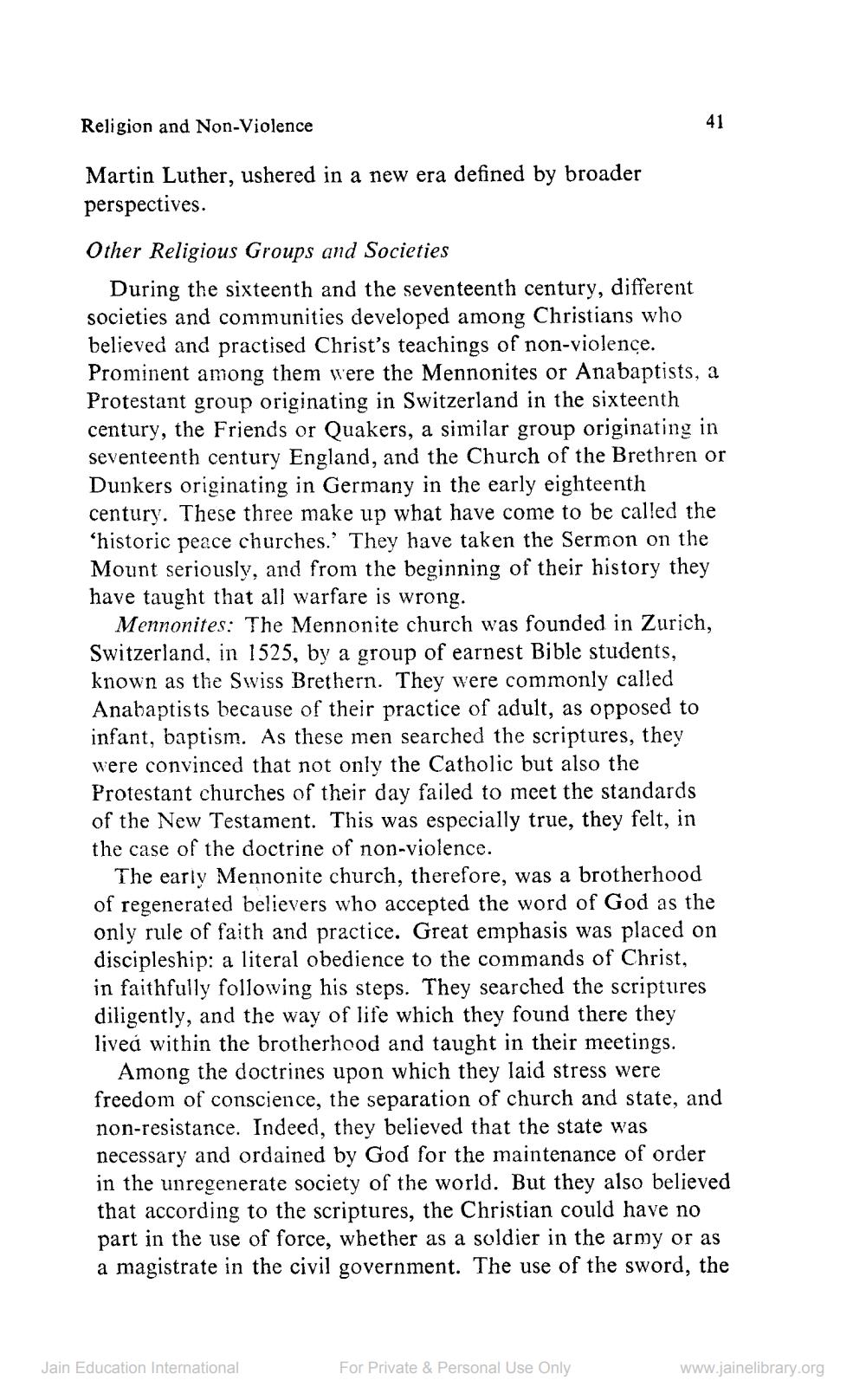________________
Religion and Non-Violence
Martin Luther, ushered in a new era defined by broader perspectives. Other Religious Groups and Societies
During the sixteenth and the seventeenth century, different societies and communities developed among Christians who believed and practised Christ's teachings of non-violence. Prominent among them were the Mennonites or Anabaptists, a Protestant group originating in Switzerland in the sixteenth century, the Friends or Quakers, a similar group originating in seventeenth century England, and the Church of the Brethren or Dunkers originating in Germany in the early eighteenth century. These three make up what have come to be called the ‘historic peace churches. They have taken the Sermon on the Mount seriously, and from the beginning of their history they have taught that all warfare is wrong.
Mennonites: The Mennonite church was founded in Zurich, Switzerland, in 1525, by a group of earnest Bible students, known as the Swiss Brethern. They were commonly called Anabaptists because of their practice of adult, as opposed to infant, baptism. As these men searched the scriptures, they were convinced that not only the Catholic but also the Protestant churches of their day failed to meet the standards of the New Testament. This was especially true, they felt, in the case of the doctrine of non-violence.
The early Mennonite church, therefore, was a brotherhood of regenerated believers who accepted the word of God as the only rule of faith and practice. Great emphasis was placed on discipleship: a literal obedience to the commands of Christ, in faithfully following his steps. They searched the scriptures diligently, and the way of life which they found there they lived within the brotherhood and taught in their meetings.
Among the doctrines upon which they laid stress were freedom of conscience, the separation of church and state, and non-resistance. Indeed, they believed that the state was necessary and ordained by God for the maintenance of order in the unregenerate society of the world. But they also believed that according to the scriptures, the Christian could have no part in the use of force, whether as a soldier in the army or as a magistrate in the civil government. The use of the sword, the
Jain Education International
For Private & Personal Use Only
www.jainelibrary.org




